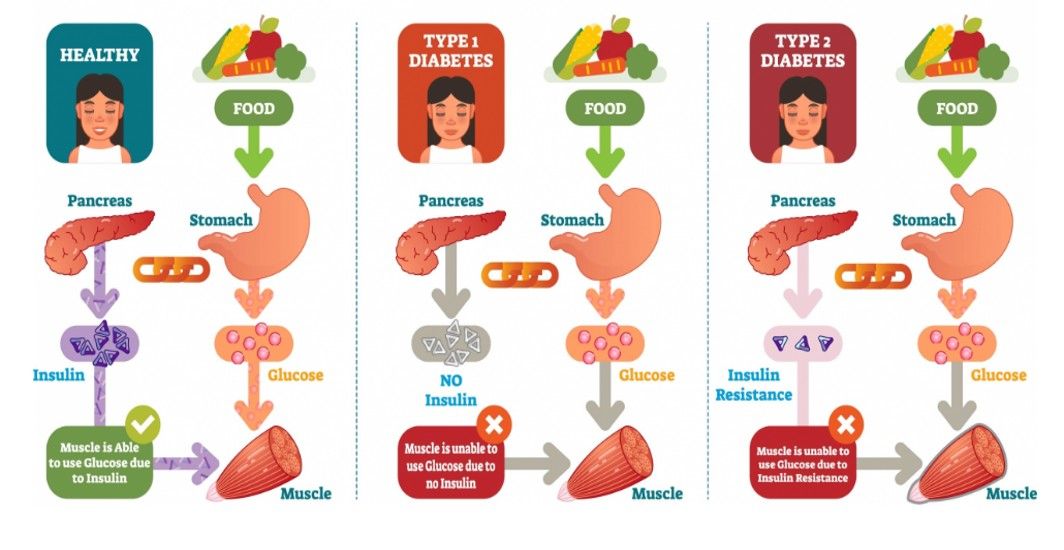Diabetes Management
Decoding the Emotional Toll of Diabetes Management
1 min read
By Apollo 24|7, Published on - 13 March 2024, Updated on - 14 March 2024
Share this article
0
0 like
.jpg?tr=q-80)
Living with diabetes is like walking a tightrope, balancing physical health with mental wellness. Not only does diabetes affect your body, but it also takes a toll on your emotions and mental health. It's a silent struggle that countless Indians face every day.
The Interplay of Mental Health and Diabetes
Mental health is like the unseen puppeteer behind diabetes management. When mental health is compromised, managing diabetes becomes an uphill task, and vice versa. Depression is common among people with diabetes, often compromising the management of the disease and increasing the risk of heart disease.
Diabetes Distress: The Invisible Burden
A significant portion of people living with diabetes often grapples with "diabetes distress." They juggle feelings of frustration, guilt, sadness, and worry about managing their disease. This emotional turmoil can spiral into unhealthy habits, negatively impacting blood sugar levels.
The Importance of Psychological Support
Addressing the emotional needs of people living with diabetes is crucial for their well-being and effective self-care. Unattended psychosocial problems can significantly impair one's mental well-being.
Cognitive Impact and Type 1 Diabetes
Living with type 1 diabetes can negatively affect cognitive functions like attention span, information processing speed, and executive functions across one's lifespan. Depression, anxiety, and distress are prevalent among individuals living with type 1 diabetes, compromising their quality of life.
Adopting Coping Strategies and Seeking Support
In managing diabetes, seeking support from doctors, mental health counselors, and diabetes educators can help alleviate emotional challenges. These professionals offer invaluable guidance to help develop effective coping strategies tailored to each individual's needs.
Living with diabetes is not just about managing blood sugar levels but also about handling the emotional upheaval that comes along with it. Seeking timely professional support helps ease the journey. Remember, mental health is as important as physical health in managing diabetes.
Diabetes Management
Consult Top Diabetologists
View AllLeave Comment
Recommended for you

Diabetes Management
Balanced Meal Ideas for a Healthy Diabetic Lifestyle
Meal planning for diabetes management is about more than just cutting out sugar. It's about making mindful choices throughout the day, from your morning boost to evening snacks. Incorporate a variety of nutrient-dense foods, plan meals in advance, and stay active. Make these small changes to your lifestyle to see big results in your overall health. Remember, every step you take towards a healthier lifestyle counts.

Diabetes Management
Understanding the Various Types of Diabetes
Diabetes is a chronic health condition that affects how your body turns food into energy. There are three main types of diabetes: type 1, type 2, and gestational diabetes (diabetes while pregnant). Recognizing the type of diabetes you have and understanding its management strategy is crucial for effective control. Regular health check-ups, blood sugar monitoring, a healthy diet, and an active lifestyle form the bedrock of diabetes management. Empower yourself with the right knowledge and approach to live a healthy life with diabetes.

Diabetes Management
Sugarcane Juice and Diabetes: A Comprehensive Understanding
Sugarcane juice, a favourite among many, can still find a place in a diabetic-friendly diet when consumed responsibly. Despite its high sugar content, its low GI and rich nutrient profile make it possible to enjoy this sweet beverage. Remember, moderation is key, keeping a check on your blood sugar levels is crucial and individual needs vary, so consult with your doctor before adding sugarcane juice to your diet.
Subscribe
Sign up for our free Health Library Daily Newsletter
Get doctor-approved health tips, news, and more.
Visual Stories

8 Fruits That are Incredibly Healthy for Diabetes
Tap to continue exploring
Recommended for you

Diabetes Management
Balanced Meal Ideas for a Healthy Diabetic Lifestyle
Meal planning for diabetes management is about more than just cutting out sugar. It's about making mindful choices throughout the day, from your morning boost to evening snacks. Incorporate a variety of nutrient-dense foods, plan meals in advance, and stay active. Make these small changes to your lifestyle to see big results in your overall health. Remember, every step you take towards a healthier lifestyle counts.

Diabetes Management
Understanding the Various Types of Diabetes
Diabetes is a chronic health condition that affects how your body turns food into energy. There are three main types of diabetes: type 1, type 2, and gestational diabetes (diabetes while pregnant). Recognizing the type of diabetes you have and understanding its management strategy is crucial for effective control. Regular health check-ups, blood sugar monitoring, a healthy diet, and an active lifestyle form the bedrock of diabetes management. Empower yourself with the right knowledge and approach to live a healthy life with diabetes.

Diabetes Management
Sugarcane Juice and Diabetes: A Comprehensive Understanding
Sugarcane juice, a favourite among many, can still find a place in a diabetic-friendly diet when consumed responsibly. Despite its high sugar content, its low GI and rich nutrient profile make it possible to enjoy this sweet beverage. Remember, moderation is key, keeping a check on your blood sugar levels is crucial and individual needs vary, so consult with your doctor before adding sugarcane juice to your diet.
